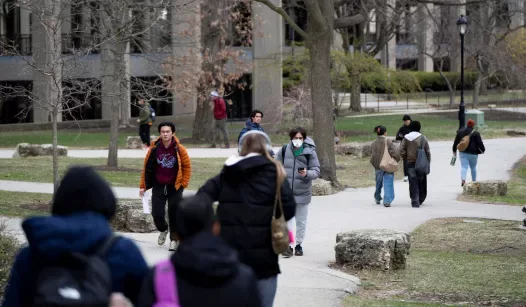Recent research has sparked a conversation about the political beliefs of college students, suggesting that many may be aligning themselves with liberal ideologies not necessarily out of genuine conviction, but rather to fit in with their peers. This phenomenon raises important questions about authenticity in political expression and the pressures faced by students in academic environments.
The study, which surveyed a diverse range of college students across the United States, found that a significant number reported liberal views, particularly on social issues. However, researchers noted a trend where some students felt compelled to adopt these beliefs to avoid social ostracism or to be accepted within their campus communities. This raises a critical point about the nature of political identity in a setting that is often characterized by strong ideological divides.
The college environment is uniquely positioned as a breeding ground for political activism and discourse. With many institutions leaning towards progressive values, students may feel that adopting a liberal stance is the path of least resistance. The desire to belong can overshadow personal beliefs, leading individuals to publicly advocate for positions that they may not fully endorse in private.
This situation is not only a reflection of individual student experiences but also indicative of broader societal trends. The polarization of political ideologies in the United States has created an atmosphere where expressing dissenting opinions can lead to backlash, particularly among younger demographics. As a result, some students may choose to remain silent about their true beliefs or adapt them to fit in with the dominant culture on campus.
Moreover, this phenomenon raises questions about the impact of social media on political expression. Platforms like Twitter and Instagram amplify voices and opinions, often creating echo chambers that reinforce existing beliefs. In such environments, students may feel pressured to conform to the prevailing narrative, further complicating their ability to express authentic views. The fear of being judged or marginalized can stifle meaningful discussions and discourage open dialogue about political issues.
Understanding the motivations behind students’ political affiliations is crucial for fostering a more inclusive and supportive environment on college campuses. Institutions can play a vital role in encouraging diverse viewpoints and creating spaces for respectful discourse. By promoting a culture where differing opinions are valued, colleges can help mitigate the pressure to conform and empower students to explore their beliefs more freely.
As the political landscape continues to evolve, it is essential for educators, administrators, and students themselves to engage in conversations about authenticity and the importance of genuine political expression. Encouraging students to reflect on their beliefs and the reasons behind their political affiliations can lead to a more nuanced understanding of the complex factors that shape political identity.
In conclusion, while the study highlights a concerning trend of conformity among college students regarding liberal ideologies, it also opens the door to important discussions about the nature of political expression in academic settings. By fostering an environment that values diversity of thought, colleges can help students navigate the complexities of their beliefs and encourage them to engage authentically in the political discourse that shapes their futures.
